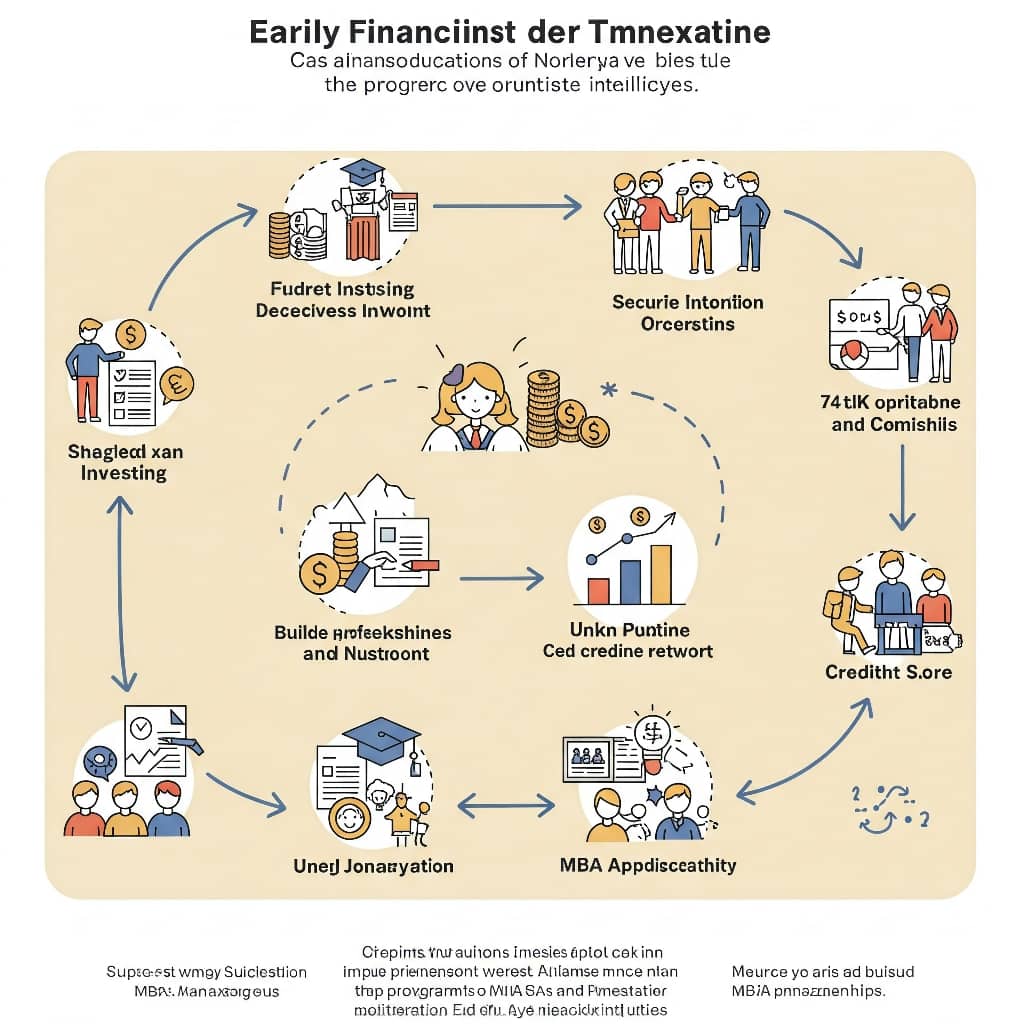The moment I realized my MBA’s real value wasn’t in the classroom, everything changed. Strategic budgeting and financial planning are the invisible drivers of MBA success. Discover how money management shapes which opportunities you can access during and after business school. It was week three of the program when my study group gathered at a coffee shop to plan our semester. As we debated textbook purchases, networking event costs, and internship travel budgets, something clicked – the financial decisions we made that afternoon would determine what opportunities we could access for the next two years. That’s when I understood: financial planning isn’t just something MBAs learn about; it’s the invisible framework that makes or breaks the entire experience.
The Opportunity Cost Calculator
Every MBA student faces the same fundamental equation: limited resources versus unlimited possibilities. The accounting principles we studied took on new meaning when applied to our own lives. That optional international consulting project? Potentially career-changing, but requiring careful saving from day one. The startup incubator with unpaid summer positions? Worth considering only if you’d built a financial runway.
I watched classmates make radically different choices based on their financial preparedness. Some skipped transformative experiences to preserve savings, while others took calculated risks that paid off spectacularly. The common thread among successful students wasn’t the size of their bank accounts, but their ability to forecast, prioritize, and allocate the same skills we were learning to apply to corporations.
Cash Flow Management as Career Strategy
The most strategic students treated their MBA finances like a startup budget. They understood that certain investments such as attending that extra conference, joining a case competition team, or taking that unpaid internship at a dream company could yield exponential returns. But this required meticulous planning.
One classmate mapped out his entire two-year cash flow during orientation week. By knowing exactly when tuition payments were due and when internship stipends would arrive, he could confidently commit to a leadership role in our entrepreneurship club , a move that directly led to his post-MBA venture capital job. Meanwhile, others who hadn’t planned found themselves passing on opportunities simply because they’d run out of money at the wrong moment.
The Networking ROI Calculation
Financial planning directly impacts your ability to build valuable relationships. Early in my program, I resisted spending $120 on an alumni dinner. A second-year student changed my perspective: “That’s not a meal expense, it’s an interview with six industry insiders that would cost ten times more through other channels.”
This reframing transformed how I budgeted. Networking became a line item rather than an afterthought. I met my future business partner at a $75 conference I’d nearly skipped, and landed my first consulting gig through a $50 student association membership that seemed expensive at the time. The MBA students who thrived weren’t necessarily the smartest or most outgoing, they were the ones who understood how to allocate limited funds toward high-impact connections.
The Personal Finance Laboratory
An MBA program serves as the perfect testing ground for financial principles. Those discounted cash flow models we built for case studies? I applied them to evaluate whether an expensive executive coaching certification was worth the investment. The portfolio diversification theories? They helped me balance high-risk, high-reward extracurriculars with safer, structured learning.
One finance professor changed my thinking permanently when he said, “Your time here is a series of NPV calculations, you just don’t realize it.” He was right. Every choice from which classes to take to which recruiters to meet represented an allocation of scarce resources with uncertain future payoffs. The students who approached these decisions with financial discipline consistently came out ahead.
The Post-MBA Financial Transition
The budgeting skills honed during an MBA pay dividends long after graduation. Negotiating that first post-MBA salary becomes easier when you’ve tracked your living expenses to the dollar. Deciding between job offers requires the same discounted cash flow analysis we used for capital budgeting. Even personal investment decisions benefit from the valuation techniques we practiced.
I’ve seen classmates transition seamlessly into higher-paying roles because they’d planned their finances to allow for strategic risk-taking. Others who neglected this planning found themselves trapped in suboptimal positions simply because they needed immediate income. The difference wasn’t talent or opportunity, it was financial preparation.
The Ultimate Business Simulation

In retrospect, the entire MBA experience serves as the ultimate financial planning case study. We’re given limited resources (time, money, energy) and asked to maximize our returns across multiple competing priorities. The students who treat this as a real-world business challenge, with budgets, forecasts, and performance metrics inevitably extract more value from the experience.
Those financial planning skills become the invisible framework supporting every other aspect of MBA success. They determine which doors remain open, which risks you can afford to take, and ultimately, how much of your potential you can actualize. That’s why the savviest students start planning their MBA finances before they even set foot on campus because they understand that money, managed wisely, buys more than just textbooks and tuition. It buys possibility.
References
Hussaini, S. S., Kumar, S., & Premkalal, S. (2025). A case study on MBA graduates’ need for financial literacy. International Journal of Innovative Research in Technology, 11(8), 3183.
Lee, S. (2025, April 12). Smart MBA budgeting for growth and cost control. Number Analytics.
Harvard Business School Online. (n.d.). Why is budgeting important in business? 5 reasons.

